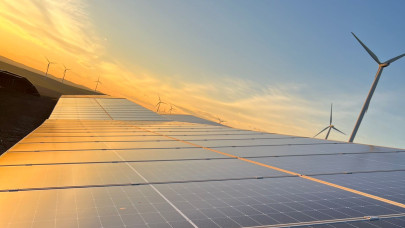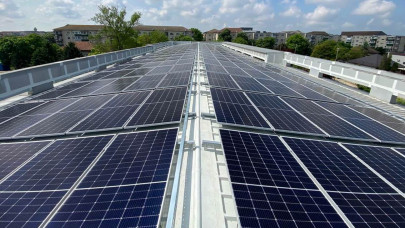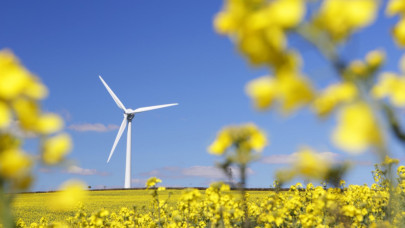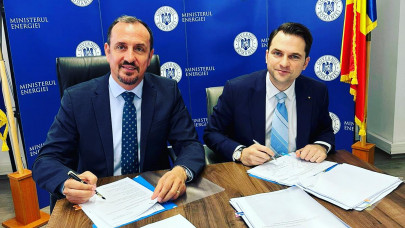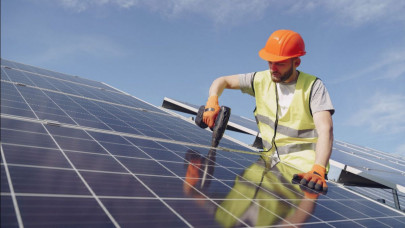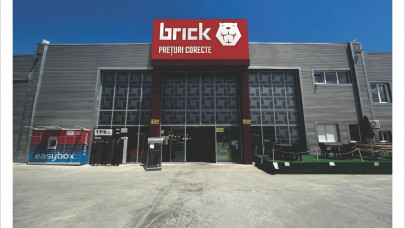Connecting to the electrical network involves going through several stages, which are embodied in distinct activities performed by different operators, the stages, and the procedures necessary for connecting users to the network being established by ANRE regulations.
"We are particularly interested in the process of connecting the new production capacities from renewable sources to the transmission/distribution network, considering that several financing schemes have been launched, through the National Recovery and Resilience Program, but also through other national and community investment programs. In this context, the priority is the optimization of the national authorization/approval procedures, with the aim of reducing project implementation times. At the same time, it is very important to differentiate between strictly necessary regulations, with an essential role in ensuring the quality of services, and those that are not strictly necessary, even potentially harmful to the development of the market", said Bogdan Chiriţoiu, president of the Competition Council.
The study shows that the most frequent problems faced by companies when entering the electricity production market from renewable sources refer to the administrative authorization process (bureaucracy, non-transparent processes, the long duration of issuing the technical approval for connection (ATR), legislative framework interpretable and insufficient), but other problems were also identified regarding insufficient investments in the development of electricity networks, the lack of experience in working with renewable projects of the personnel involved in various stages of the authorization process, the development of speculative investments.
As a result, the competition authority and the energy regulatory authority formulated a series of proposals and recommendations to eliminate or mitigate the barriers identified in the study.
The implementation of a "one-stop-shop" module dedicated to obtaining the license in the field of electricity production from renewable sources, as a distinct part within the single electronic point of contact for the industrial license, could have multiple benefits from the point of view of reducing the time of granting of licenses and, implicitly, connection to the network, from the point of view of transparency, standardization and uniformity of the process. Thus, economic operators who invest in renewable energy production capacities will be able to apply to obtain the licenses, authorizations, agreements, and approvals necessary to carry out the activity in a single procedure, through the single electronic point of contact for the industrial license. In this way, the possibility of having a unique forum in Romania regarding renewable energy projects is created, bringing together specialists in the field of the development of these projects, which would allow a faster assessment of the cumulative impact of all projects.
Considering the difficulties generated by the insufficient development of electrical networks, which leads to network congestion in the most important areas for the connection of photovoltaic/wind farms, the Competition Council and ANRE recommend to the Ministry of Energy and the central authorities with powers to regulate certain stages in the development of the electricity network transport so that, when developing and implementing strategies in this field, it takes into account the objectives assumed by Romania in the field of renewable energy and the need to identify new possibilities for ensuring/facilitating sources of financing for network development works.
From the point of view of the legislation, it was found that the main barriers are the lack of legislative levers to prevent the development of investments with a potential speculative character and the lack of a correlated legislative package, which would prevent the long duration of the connection process. Currently, there are situations where some economic operators/investors request and obtain ATR, but do not intend to complete the projects and put them into operation, with a view to entering the market, but rather sell the projects to other investors at the "ready" stage to build". This behavior leads to the blocking of the available capacity for connecting investments in renewable projects during the validity period of the ATRs obtained, producing major difficulties for investors who request grid connection in order to effectively enter the market.
ANRE developed in 2021 a regulation that facilitates the transfer of useful information to potential investors, by making transparent and publishing the capacities available in the electricity networks and the capacity limitations. However, the competition authority and ANRE believe that additional measures should be adopted to discourage speculative investments, which would prevent or alleviate deadlock situations, such as, for example, introducing a performance guarantee or sanctioning prolonged inaction of investors.
Also, the process of connecting the producers faces difficulties regarding the financing of the works to strengthen the electrical networks, in order to be able to take over the electricity produced by the new units that should be installed, and the practice of a tariff of approximately 100,000 euros/MW for the works of strengthening the network made the development of large-scale projects prohibitive.
In this context, the Competition Council and ANRE recommend the use of support schemes for the production of electricity from renewable sources. One of these is financed by PNRR and is based on a competitive bidding procedure, to support investments in the production of wind and solar energy, with or without integrated storage facilities. The other technologies for the production of energy from renewable sources are financed by the Fund for Modernization in the period 2022-2030 in Romania.
In addition, it is necessary that the connection procedures at the level of the network operators are harmonized, and they should publish detailed guides and the necessary documents. Likewise, distribution operators should constantly update existing information about the grid connection of electricity producers, the competition authority says.
Also, the competition authority and ANRE recommend the organization of continuous staff training programs, considering that another problem faced by investors in the connection process is the lack of experience in working with renewable projects. Although network operators' personnel are better informed and more efficient, the lack of experience in working with SRE projects tends to delay the whole process.
"The study related to the identification of possible legislative barriers to market entry from the perspective of connecting new electricity generation capacities from renewable sources to the National Electroenergetic System" comes in addition to the study recently launched by the Competition Council regarding the possible restriction of market access for energy producers from renewable sources, within the authorization/approval process by the public authorities.
The preliminary version of the study can be consulted on the institution's website, until November 4, 2023. Observations can be sent during this time period, by e-mail. The observations will also be sent in a non-confidential form, considering that they will be published together with the final version of the study.


